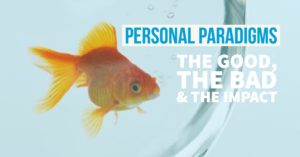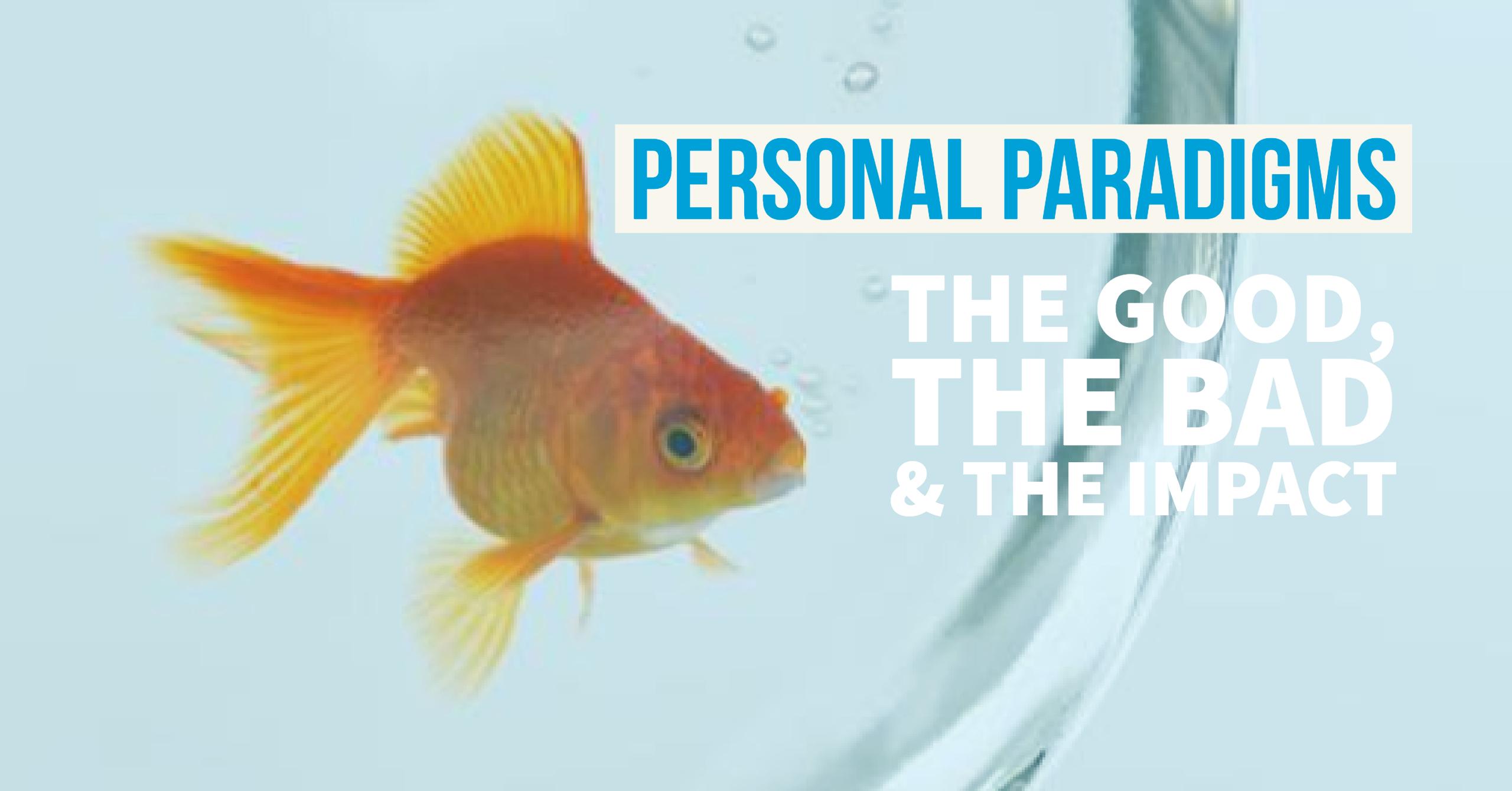
They say that goldfish have a memory that’s about 10 seconds long, no doubt an exaggeration but for argument’s sake, let’s say that’s true. With a memory that short, they would be forever rediscovering the world around them. They would have no operating principle to help them navigate. Without personal paradigms, we’d be very much like that goldfish. Though his bowl of water is small he is forever shouting, “Hey, there’s a castle! Hey, there’s a castle!”
How Personal Paradigms Serve Us: Paradigms help us to interpret, define and engage in the world around us. Without our paradigms, we would constantly be struggling to determine and define what we see, what we hear and what we should do about it. Our paradigms help us to move through our lives seamlessly.
When I was in college, I made a friend who often shared stories about her family and their activities. She spoke of the antiques her mother collected and the beautiful old apartment they lived in. She shared stories of their travels and generally painted an amazing picture of her life. As I got to know her better it became clear her stories didn’t quite reflect reality. There were no antiques, no beautiful apartment and certainly no travels.

Flash forward a few years and I’m on Parliament Hill and the office across the hall has brought in a summer student. One day the student tells us about her adventures. She has met Sting, spent a few weeks on the streets for a research project, her grandmother has left all her money to her cats and she has written for a popular soap opera. As you can imagine, because of my history, my paradigm would not allow me to believe the stories she told unless I had evidence. It was simple when people start telling fantastical stories about their lives you need to look more carefully.
Later, I quietly mentioned to my colleague that I had some suspicions about the truth of the stories shared. Well, my colleague’s paradigm was different from mine, so she got more than a little annoyed at my suspicions and a few uncomfortable days followed. After a short period, the summer student… disappeared from the office across the way. It eventually came out that she had made up all of her stories, including her skills. People were shocked and angry, but not me. My paradigm had stepped in and said, this is bull. Once that happened, all I could see were flaws and inconsistencies. Our paradigms save us a lot of grief and can generally help us to interpret the world.
How Personal Paradigms Make Us Blind to the World: So your thinking, so what? You’ve heard all this stuff before. But what if despite knowing this, the most experienced and in some cases the most powerful people in our respective worlds persisted in behaving as if their paradigm was the only paradigm?

People get used to power and after a while, they can start to think that no matter what they do or say, they are somehow removed from consequences. They can build a personal paradigm around themselves that is so airtight that they become incapable of seeing pitfalls. They lose the ability to judge good from bad. They can divorce themselves from seeing the errors in their own behaviour.
Consider American President, Donald Trump, celebrity chef Paula Deen or former Toronto Mayor Rob Ford, all could lay claim to huge popularity and all had difficulty seeing problems with their own behaviour.
When our paradigms blind us, they don’t just make us blind to opportunity, they make us blind to threats, blind to ethical considerations, blind to the harm we are doing.
Whatever Your Perspective, Understand That You Have One: Although you may have heard it countless times, don’t forget that your truth is not necessarily THE truth. Your version of reality may not even be based in reality. If this was an easy thing to remember, then the examples above would be a lot harder to find.
Has your paradigm ever helped or hindered you? Have you ever seen someone else struggle because they just couldn’t see the “truth” of a situation?
Related Articles:

